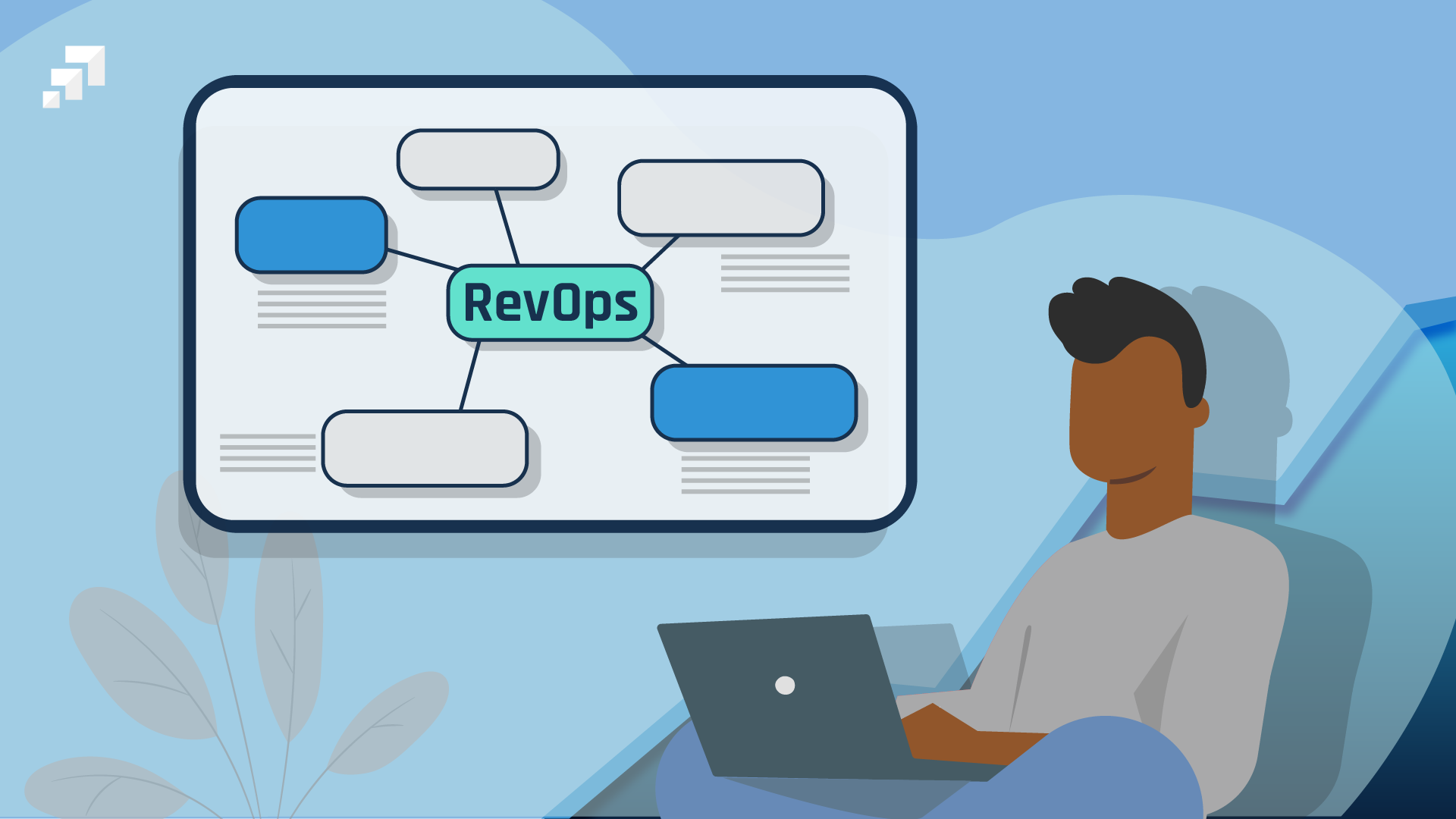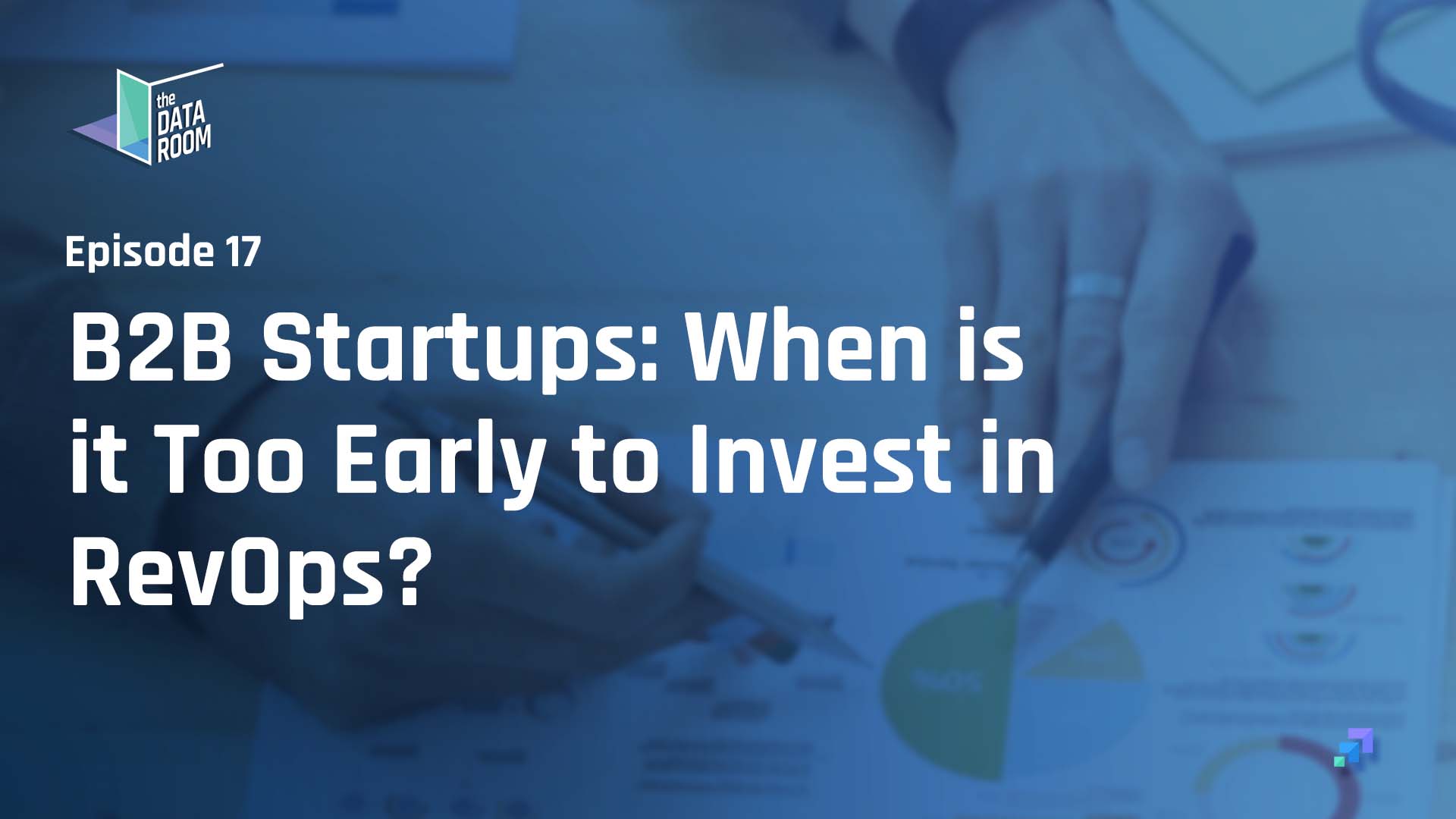What Does RevOps Actually Bring to the Table for Bootstrapped B2B Startups?
Our team recently met with the CEO of a B2B tech company in Atlanta. Bootstrapped. ~$10M ARR.

B2B startups don’t have the luxury of waiting around for the right customers to come to them.
They have to be precise in finding product-market fit, and then build an effective go-to-market engine.
There are countless approaches to doing so, but an investment in revenue operations early can help set up your foundation for scaling.
If you care about growth, then you should care about revenue operations.
There is a direct correlation between the maturity of your revenue operations function and the effectiveness of your go-to-market (GTM) engine.
Here’s a secret: The biggest reason B2B growth stagnates (or in some cases, never really begins) is because companies fail to build an effective go-to-market engine. Venture capital firm OpenView research shows that the #1 thing that keeps early and growth stage CEOs up at night is GTM execution.
When we look more closely at defining revenue operations (also known as RevOps), the case becomes obvious why strong RevOps is fundamental to having an effective go-to-market engine.
When you take an intentional approach with revenue operations, you take the activities and approaches that you work with and formalize them with process, expertise, technology, and accountability.
What does that mean? Many startups are so busy executing things—RevOps orchestrates doing those things in a cohesive manner that maximizes the output.
Take tech stack implementation, for example, which often plays out like this:
The result? It becomes very rare that the tech stack gets optimally built - more tools are brought in and cobbled together in what is considered a “Frankenstein tech stack.”
Ultimately, that means the tech stack morphs into an inhibitor to growth. It becomes more difficult for the sales and marketing staff to do their jobs effectively: marketing spends more time searching for the right data in the CRM to create marketing campaigns, and the sales team wastes time inputting notes and data into the CRM.
All the money spent on the tech stack is essentially wasted because it isn’t properly implemented.
Bringing in RevOps expertise means bringing in a leader to architect, configure and maintain the go-to-market tech stack in a fashion that truly accelerates the productivity of the sales and marketing staff.
No one starts their company with a perfectly optimized go-to-market engine on the first day. The reality is that most companies never even achieve a reasonably effective go-to-market engine.
Being a startup means loving the process of iterating.
And iteration is quickest and most efficient when revenue leaders are supported with reliable data and insights. The most useful data and the most helpful insights ensures each iteration gets you close to optimization, not further away from it.
Having an immature go-to-market data foundation makes it very difficult for companies to iterate in a timely and efficient manner—they find themselves running off their cash runway before the go-to-market engine is humming.
Why does this situation exist? Because without a dedicated RevOps function, no team is responsible for producing those insights that can help go-to-market effectiveness.
A strategic RevOps function requires expertise required to design a proper data model, establish data integrity mechanisms, and analyze data in a way that can surface high-impact actionable insights.
What type of expertise is needed for RevOps?
When you combine the pattern matching skills with the deep understanding of go-to-market motion, you get people who can see actionable insights where others simply see numbers. You don’t typically find these skills in the same people who are masters at manipulating the technology. And that’s why at larger companies there are data operations and business analysis groups that are distinctly different than the technology operations groups, though all still part of the RevOps function.
Getting the tech stack right and the go-to-market data and insights right are by far the most important benefits of RevOps for early- and growth-stage companies.
But a dedicated RevOps function can also dramatically improve activities where no one is uniquely accountable for them, including:
As companies grow, there tends to be a cultural friction caused by misalignment of the sales and marketing organizations. That misalignment is made worse when sales is allowed to build their own sales operations function and marketing is allowed to build their own marketing operations function.
Because these operational functions report to either sales or marketing, their priorities and activities are often in favor of the team they report to.
RevOps is focused on the customer and associated revenue, so this function is meant to be agnostic to the rest of the departments. One of the collateral benefits of a dedicated RevOps function is that it largely eliminates the friction caused by sales & marketing misalignment.
There are multiple tangible ways RevOps enables faster revenue growth. Here are four high-impact ways that making an intentional investment in revenue operations:
Properly configuring the tech stack: Make it easy for your sales, marketing, and customer success teams to use tools in your tech stack. This means your teams will be spending more time doing the things they are good at instead of cobbling technology.
Pull data to help product market fit, message fit, and positioning: Figuring out your product-market and message fit is essential, especially in the early stages of gaining traction and then with better positioning you’ll close more business. Analyzing data from conversation intelligence software, for example, can help you identify the exact problems that your prospects are looking to solve.
Identify and remove wasted spend: To remain agile, your capital should be deployed into higher performing initiatives that are actually bringing in business. This could be higher performing strategies, teams, or people. A strong RevOps leader or partner can identify where and when to deploy your next dollar.
Determine and eliminate friction throughout GTM processes: Friction is frustrating for end users and customers alike. It comes in many different forms but ultimately it slows deals down. Intentionally focusing on formalizing your processes and using technology to enable them can eliminate some of the growing pains you endure while scaling.
Revenue operations is a key component for early- and growth-stage companies that want to efficiently and effectively scale.
Where should you start? You can look at building a team internally, or hiring an experienced RevOps partner. With either option, it’s important that your team empowers the revenue operations leader to take ownership of the company’s tech stack, while giving them room to collaborate in the go-to-market strategy.

Our team recently met with the CEO of a B2B tech company in Atlanta. Bootstrapped. ~$10M ARR.

It's common to think of data as just an operational component for sales and marketing teams. But did you know that the quality of your data can...

As a B2B startup, you have many avenues available to start building. It can be a bit overwhelming to figure out where to put your focus.